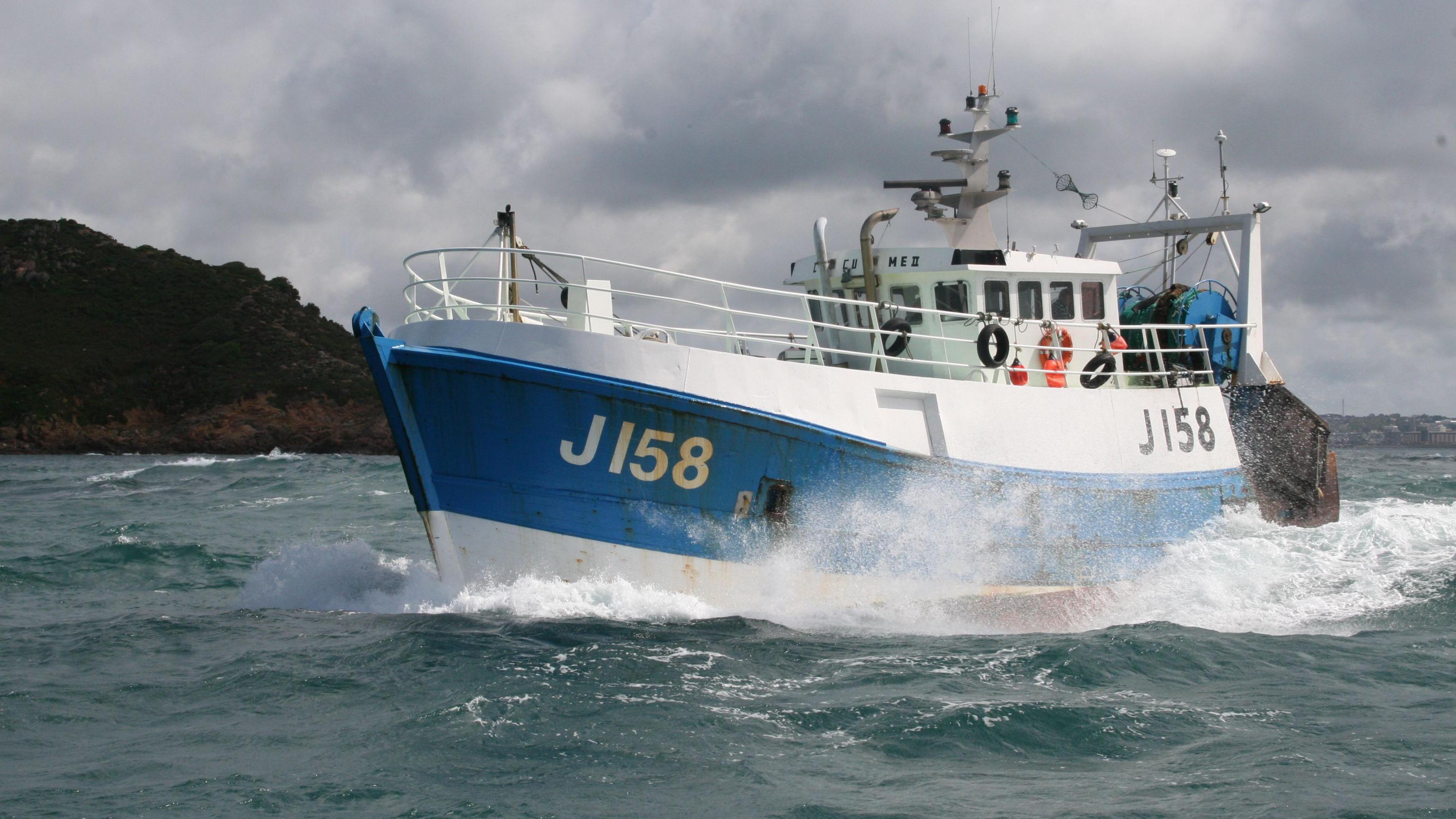Officer 'shell-shocked' and 'numb' after crash
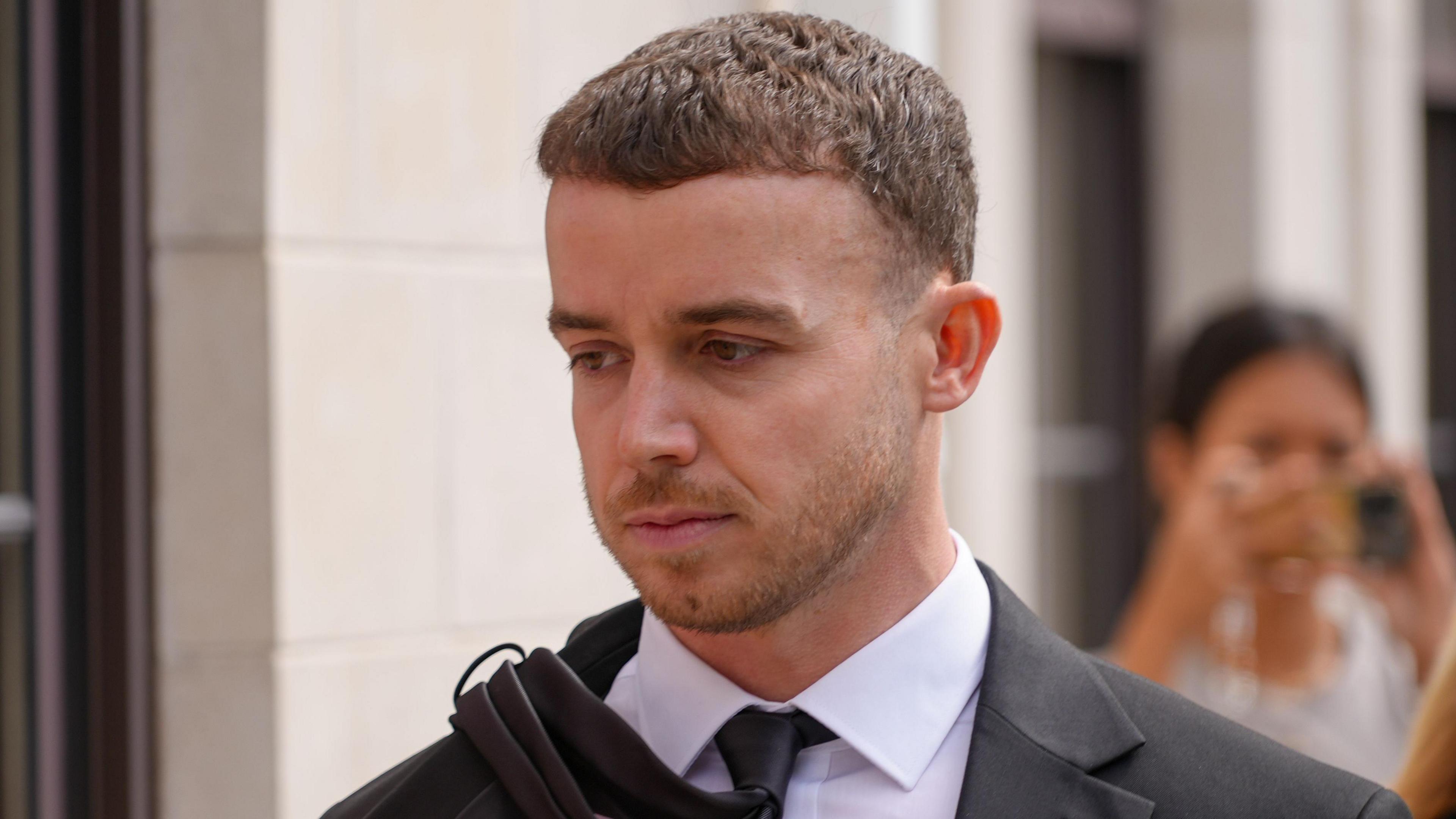
Defendant Lewis Carr has been speaking to the court for the first time during the trial
- Published
The second officer in charge of a Condor ferry was "shell-shocked" and "numb" after a collision with a fishing vessel which killed all three onboard, a court has heard.
Lewis Carr denies three counts of gross negligence manslaughter over the deaths of L'Ecume II skipper Michael Michieli and crew members Larry Simyunn and Jervis Baligat in December 2022 when their vessel collided with the Commodore Goodwill. He is being tried alongside ex-Condor crew member Artur Sevash-Zade on the same charges.
Mr Carr told Jersey's Royal Court that he "couldn't think clearly at all" and "kind of felt frozen" after colliding into L'Ecume II.
The court had previously heard that Mr Michieli would always have his fishing lights on as a matter of protection from larger boats.
Mr Carr told the jury he "didn't see any fishing lights" on L'Ecume II when using his sight and binoculars 20 minutes before the collision took place.
He said he could see "the ship's side lights, single mass headlight and some deck lights" and that the vessel was "proceeding normally" on its route.
The second officer said between 05:15 GMT and 05:24 there was a "small, slight echo" of L'Ecume II on his radar "but nothing solid at that point".
Mr Carr said when he located L'Ecume II on the automatic identification system that he "recognised it as a fishing boat by name" but, on the day of collision, as "it didn't have fishing lights on", he "assumed it was a power-driven vessel".
Answering defence lawyers, he said he did not consider it to be engaged in fishing.
Because of this, Mr Carr told the jury that he expected L'Ecume II to take action and pass by the Goodwill in accordance with maritime regulations. He maintained the course and speed of the Condor vessel until a minute before the collision.
Mr Carr said he altered to starboard and then L'Ecume II "turned to port", which he did not expect.
He said: "That's against any collision regulations or any seamen like alteration that I've seen before.
"At that point, I was shocked at what I was seeing and sounded the horn to try and alert L'Ecume.
"With hindsight, it is late. But at the stage I didn't think L'Ecume would alter course to port which made the collision unavoidable."
'I wasn't responsive'
The prosecution had said Mr Carr had delayed calling the captain and coastguard about the collision by four minutes.
Mr Carr said he "couldn't think clearly at all" and that he "kind of felt frozen".
He said: "The first few minutes, the main priority was trying to get a visual of L'Ecume... then stabilise the vessel.
"At that point, the main focus was trying to get a visual of L'Ecume to see if she was down in the water or where exactly she was."
Mr Carr told the court that he ran out to the bridge wing to try and get a visual and, once the captain was onboard, he spent about 15 minutes using the search light to try and locate L'Ecume II before being sent to the captain's cabin after agreeing he was "in a state of shock".
After being visited by the other second officer in his cabin, Mr Carr said: "I don't think I was in the room. I wasn't responsive, I was still in a state of shock."
Regarding an investigation interview he gave to Ports of Jersey on 9 December, Mr Carr said that, at the time, "I think I just wanted to help with the case and give an account without really putting myself first".
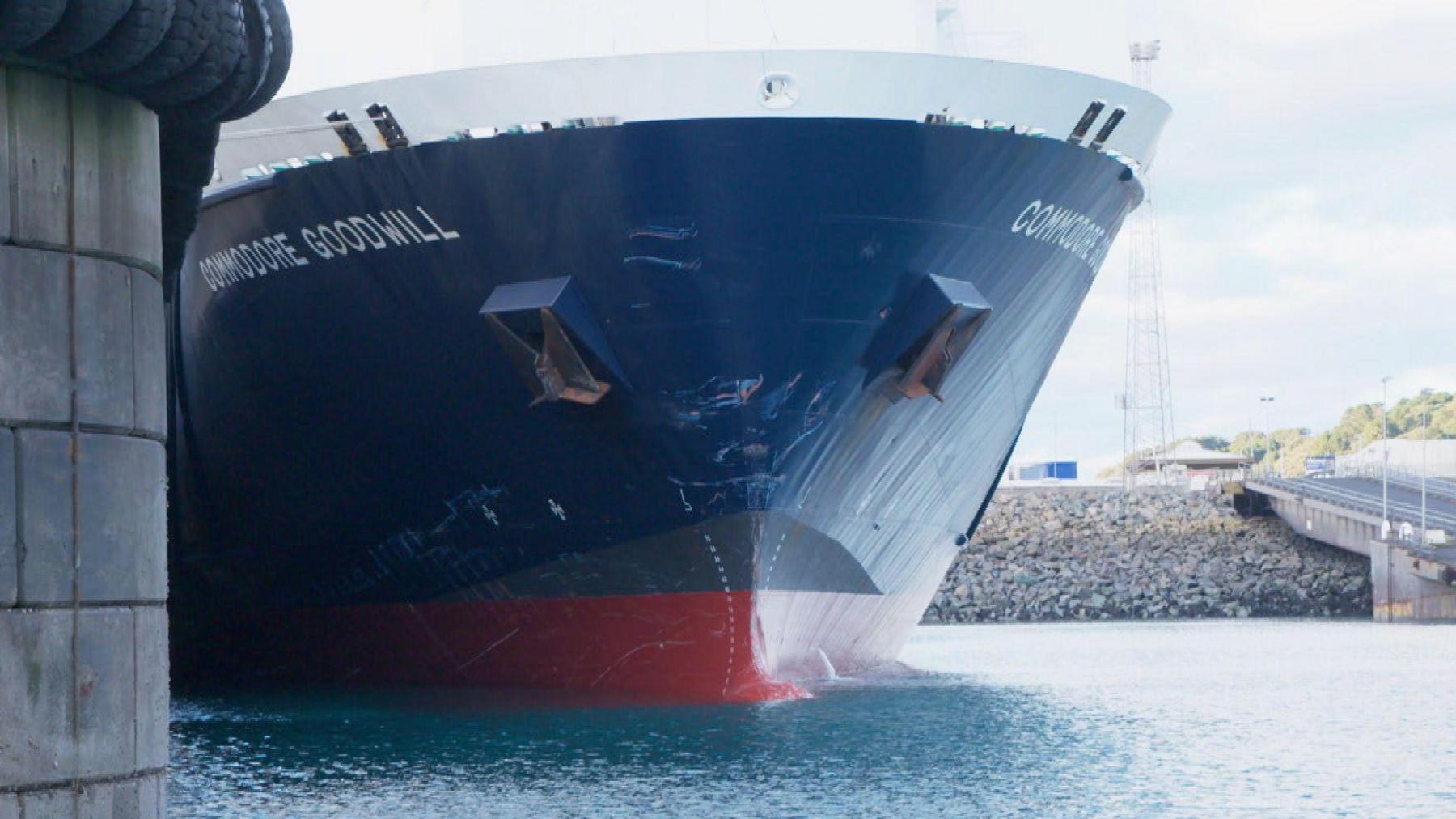
The Commodore Goodwill suffered damage to its hull after the collision
An audible alarm for collision warnings was always off onboard the Goodwill, Mr Carr also said.
He told the court that he had worked onboard for about two years and that "from my time working on the Goodwill, it [audio alarm] was always off".
He also said he "didn't see any fishing lights" on L'Ecume II.
He added that the watch alarm, which alerts crew to maintain a constant watch, would flash at the control panel - also with no audio.
Maritime expert Captain Brian McJury previously told the court that the audio from the alarm was there "to assist you" and it was not common for it to be switched off.
Situational awareness
Answering questions from defence lawyers, Mr Carr told the jury that, after starting his shift at 01:00, he had been on the deck about five to 10 minutes beforehand to familiarise himself with what was going on before his handover with the other second officer.
Capt McJury told the court on Thursday that he would have expected Mr Carr to have been "aware of his situational position" before being handed over control by the captain.
He proceeded towards Guernsey from Portsmouth and then handed back over to the captain of the ship to lead the vessel into the harbour at 02:40.
As part of his role, Mr Carr would then leave the deck to assist with leaving the harbour from the afterdeck, located at the back of the boat, acting as an extra pair of eyes to make sure the Goodwill cleared harbour safely.
The 30-year-old said he then arrived back on the bridge at 04:52 and had been there for less than a minute before handover with the captain began.
He said "one minute is probably not enough time" to gain situational awareness.
He added: "You're kind of already in the groove of taking watch... at the time you don't actually think of needing another 10 minutes to gain situational awareness.
"I think if I genuinely wasn't ready I would've asked the captain for another five minutes".
Asked by the defence if he felt pressured to take control of the deck from the captain, Mr Carr said it was "part of the job and... obviously you wouldn't say to the captain: 'I don't want to take the conn'".
He added that rest was "really important" for senior crew, saying: "If the captain doesn't get his rest, then obviously there's consequences."
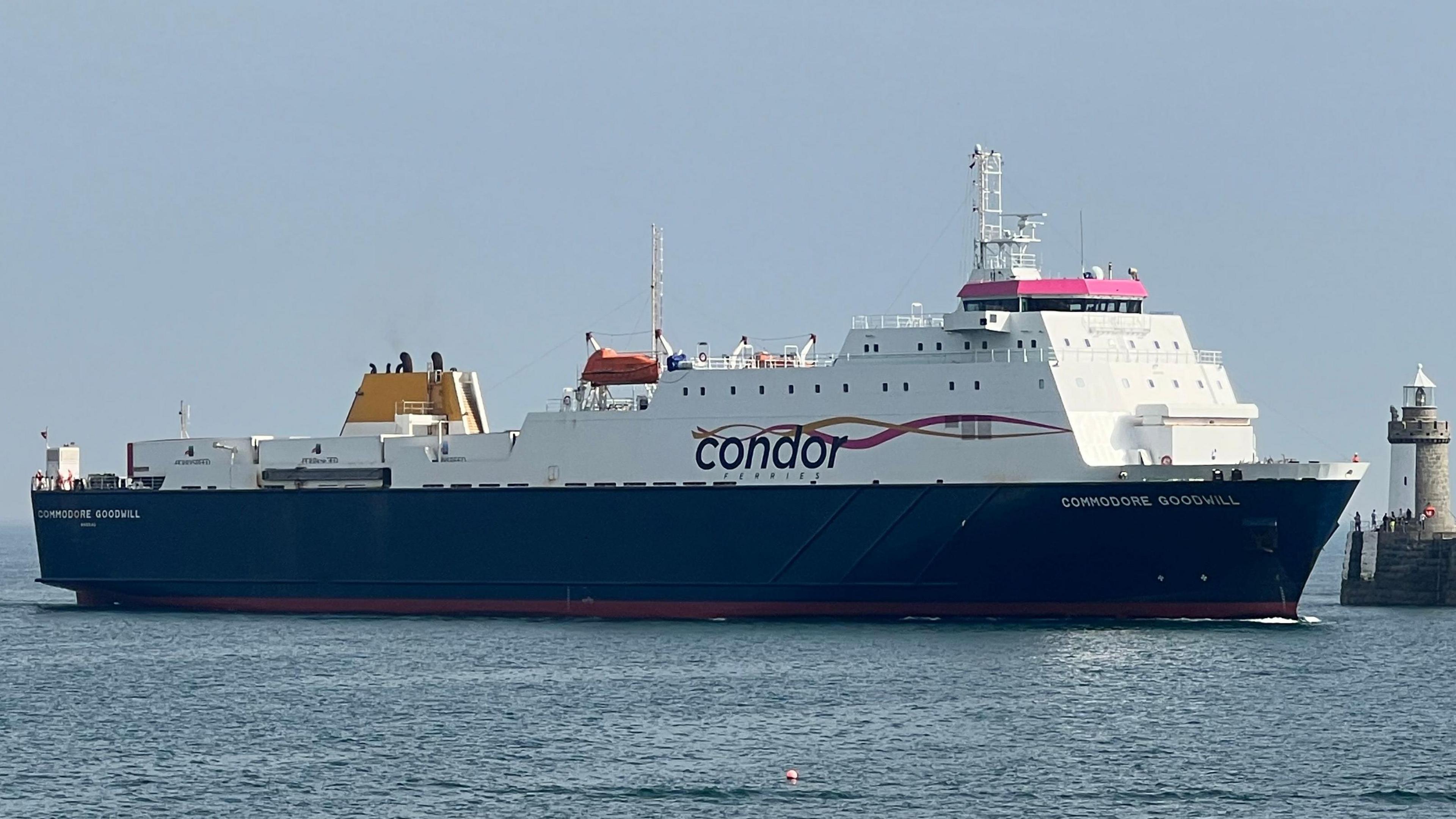
The audible settings for the collision and watch alarm were turned off onboard the Commodore Goodwill, the court heard
Mr Carr said he had only worked with Mr Sevash-Zade the week of the collision as the lookout role would be done by a new seaman each week.
"There isn't a whole lot of time to build a rapport with a certain lookout because they change every week," he told the court.
Mr Carr added that he knew Mr Sevash-Zade was "an experienced seaman", that he was "pretty confident he was performing his job properly" and that he had "no cause for concern".
The court was told previously that Mr Carr had permitted Mr Sevash-Zade to go for breakfast about five minutes after he started his shift at 05:00 GMT.
Mr Carr said it was "a practice that came in from one of the captains" of Condor and that he made sure Mr Sevash-Zade had a radio on him so he could be "called immediately to the bridge" if needed.
He said sending the lookout for breakfast saved time when at port as Mr Sevash-Zade would have to "assist the discharge and loading on the vehicle deck".
He said: "If he had his breakfast before arriving into the port, this basically saved 15 to 20 minutes… It gave the upper deck an extra pair of hands to get the ship back on time."
He said while it was just him on the bridge he would not do any jobs that would "interfere" with maintaining a lookout.
Mr Carr acknowledged having only one person on the bridge during night-time sea passage was "not right, it's not good practice and it's not something I would repeat in the future".
Mr Carr also said he felt "disadvantaged" because he had not receive a refresher in bridge resource management training (BRM).
The court was told by Mr Carr that BRM training was in place for officers working on Condor before the Covid-19 pandemic to help with work, including "keeping a safe watch following collision regulations [and] how to communicate with team members on the bridge".
He said: "The whole purpose of BRM training is to take officers out of their daily routines whereby it brings you back to the basic principles.
"It reinforces the knowledge that you learnt when you first qualified as the officer of the watch."
The court had been told previously that a rolling eights shift pattern, when crew members work eight hours on and eight hours off consecutively, had been introduced after Mr Carr had joined Condor.
Previously, crew had worked 12 hours split into two separate watches.
Mr Carr said the hours before had been "exhausting" and that officers were "ready for a change" and to work "more bearable" shift times.
When asked if he was tired on the day of the collision, Mr Carr said he was not but "at the time, you just get on with your job".
The trial continues.
Follow BBC Jersey on X, external and Facebook, external. Send your story ideas to channel.islands@bbc.co.uk, external.
- Published12 September
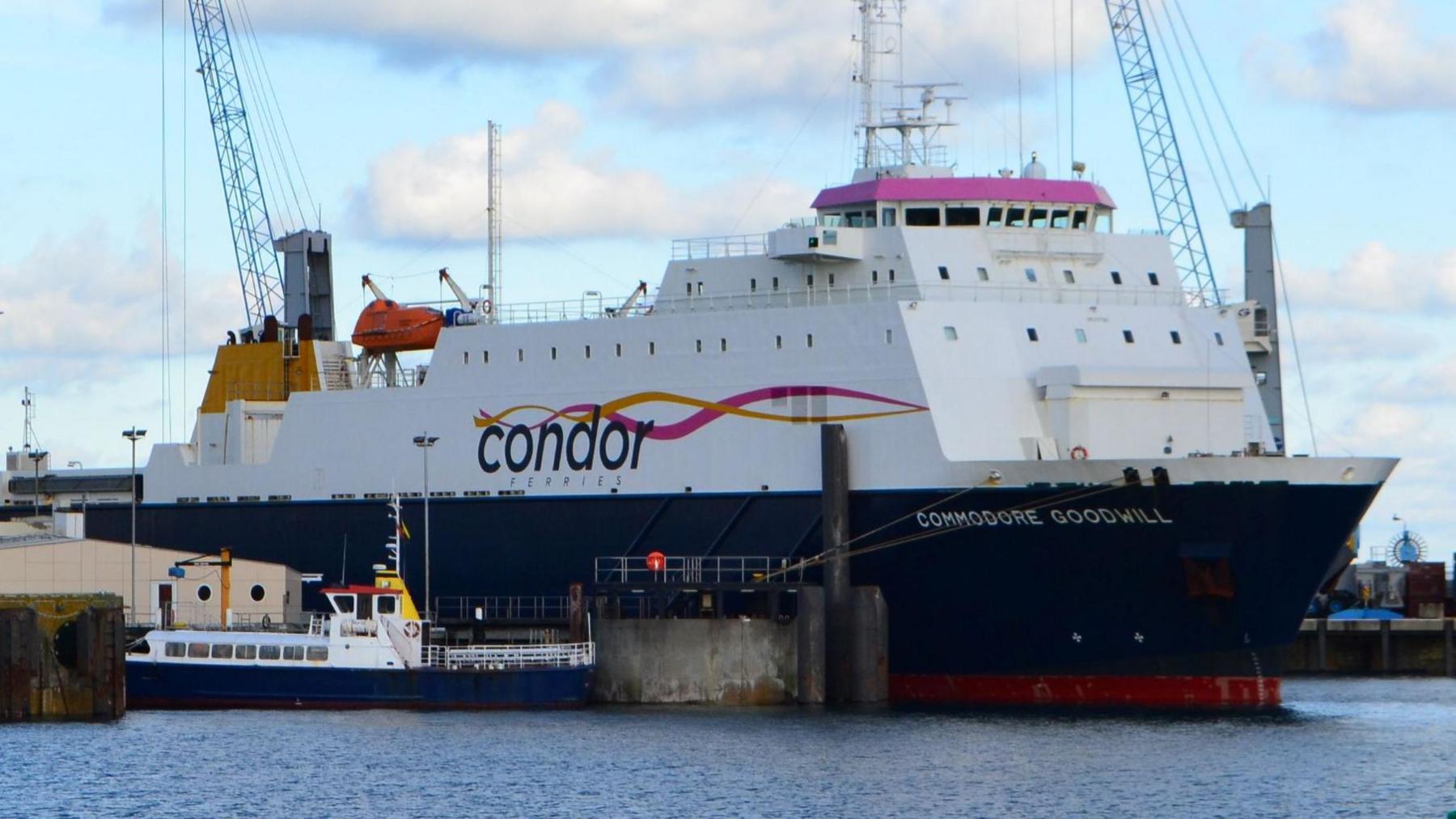
- Published11 September
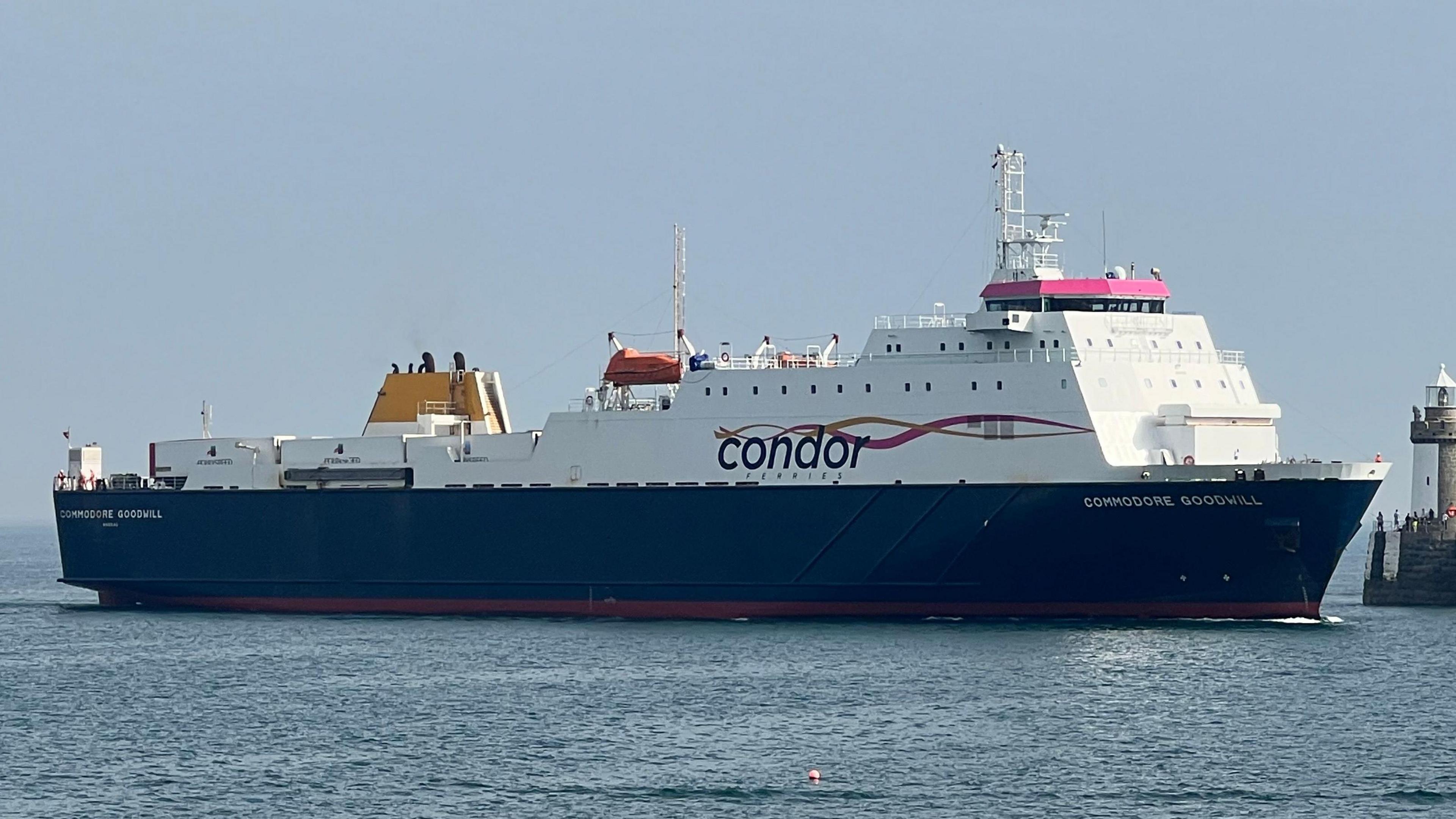
- Published10 September
